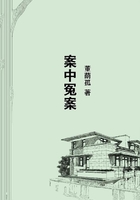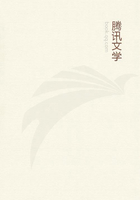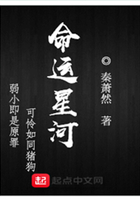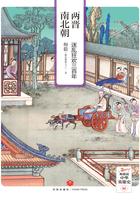The object of a pure and unconditioned intellectual delight is the moral law in the might which it exerts in us over all antecedent motives of the mind.Now, since it is only through sacrifices that this might makes itself known to us aesthetically (and this involves a deprivation of something -though in the interest of inner freedom-whilst in turn it reveals in us an unfathomable depth of this supersensible faculty, the consequences of which extend beyond reach of the eye of sense), it follows that the delight, looked at from the aesthetic side (in reference to sensibility) is negative, i.e., opposed to this interest, but from the intellectual side, positive and bound up with an interest.Hence it follows that the intellectual and intrinsically final (moral) good, estimated aesthetically, instead of being represented as beautiful, must rather be represented as sublime, with the result that it arouses more a feeling of respect (which disdains charm) than of love or of the heart being drawn towards it-for human nature does not of its own proper motion accord with the good, but only by virtue of the dominion which reason exercises over sensibility.Conversely, that, too, which we call sublime in external nature, or even internal nature (e.g., certain affections) is only represented as a might of the mind enabling it to overcome this or that hindrance of sensibility by means of moral principles, and it is from this that it derives its interest.
I must dwell while on the latter point.The idea of the good to which affection is superadded is enthusiasm.This state of mind appears to be sublime: so much so that there is a common saying that nothing great can be achieved without it.But now every affectionis blind either as to the choice of its end, or, supposing this has been furnished by reason, in the way it is effected for it is that mental movement whereby the exercise of free deliberation upon fundamental principles, with a view to determining oneself accordingly, is rendered impossible.On this account it cannot merit any delight on the part of reason.Yet, from an aesthetic point of view, enthusiasm is sublime, because it is an effort of one's powers called forth by ideas which give to the mind an impetus of far stronger and more enduring efficacy than the stimulus afforded by sensible representations.But (as seems strange) even freedom from affection (apatheia, phlegma in significatu bono) in a mind that strenuously follows its unswerving principles is sublime, and that, too, in a manner vastly superior, because it has at the same time the delight of pure reason on its side.Such a stamp of mind is alone called noble.This expression, however, comes in time to be applied to things-such as buildings, a garment, literary style, the carriage of one's person, and the like-provided they do not so much excite astonishment (the affection attending the representation of novelty exceeding expectation) as admiration (an astonishment which does not cease when the novelty wears off)-and this obtains where ideas undesignedly and artlessly accord in their presentation with aesthetic delight.
There is a specific distinction between affections and Passions.
Affections are related merely to feeling; passions belong to the faculty of desire, and are inclinations that hinder or render impossible all determinability of the elective will by principles.
Affections are impetuous and irresponsible; passions are abiding and deliberate.Thus resentment, in the form of anger, is an affection:
but in the form of hatred (vindictiveness) it is a passion.Under no circumstances can the latter be called sublime; for, while the freedom of the mind is, no doubt, impeded in the case of affection, in passion it is abrogated.
Every affection of the STRENUOUS TYPE (such, that is, as excites the consciousness of our power of overcoming every resistance [animus strenuus]) is aesthetically sublime, e.g., anger, even desperation (the rage of forlorn hope but not faint-hearted despair).On the other hand, affection of the LANGUID TYPE (which converts the very effort of resistance into an object of displeasure [animus languidus] has nothing noble about it, though it may take its rank as possessing beauty of the sensuous order.Hence the emotions capable of attaining the strength of an affection are very diverse.We have spirited, and we have tender emotions.When the strength of the latter reaches that of an affection they can be turned to no account.The propensity to indulge in them is sentimentality.A sympathetic grief that refuses to be consoled, or one that has to do with imaginary misfortune to which we deliberately give way so far as to allow our fancy to delude us into thinking it actual fact, indicates and goes to make a tender, but at the same time weak, soul, which shows a beautiful side, and may no doubt be called fanciful, but never enthusiastic.Romances, maudlin dramas, shallow homilies, which trifle with so-called (though falsely so) noble sentiments, but in fact make the heart enervated, insensitive to the stem precepts of duty, and incapable of respect for the worth of humanity in our own person and the rights of men (which is something quite other than their happiness), and in general incapable of all firm principles; even a religious discourse which recommends a cringing and abject grace-begging and favour-seeking, abandoning all reliance on our own ability to resist the evil within us, in place of the vigorous resolution to try to get the better of our inclinations by means of those powers which, miserable sinners though we be, are still left to us; that false humility by which self-abasement, whining hypocritical repentance and a merely passive frame of mind are set down as the method by which alone we can become acceptable to the Supreme Being-these have neither lot nor fellowship with what may be reckoned to belong to beauty, not to speak of sublimity, of mental temperament.


